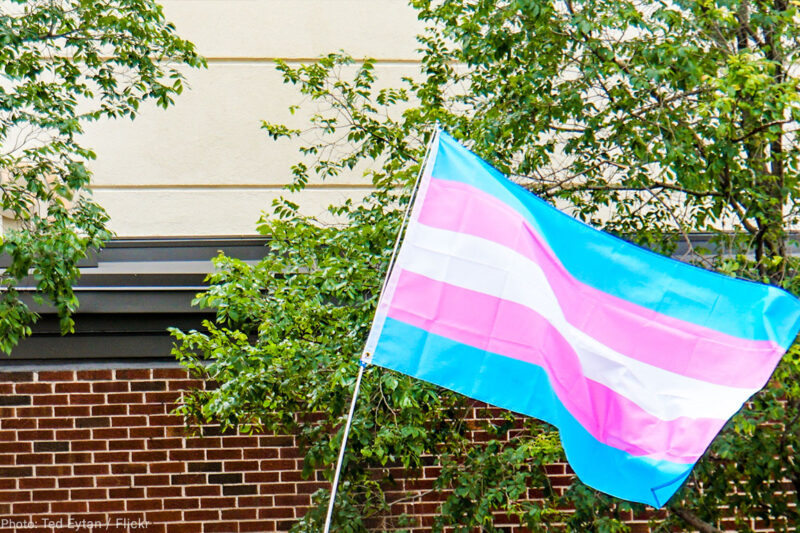Trans and Non-Binary People Continue to Fight for Their Right to Exist in Public Spaces


Kasandra Reddington has been a proud Montanan ever since her family moved to the state when she was 10 years old. She is a graduate of Montana State University Billings with a degree in psychology and now resides in Helena, where she works as a tutor at a public college. She enjoys a lot of things about Montana, but especially the state parks.
Unfortunately, an anti-trans ballot initiative is threatening Kasandra’s ability to work and do the activities she loves, solely because she is transgender.
Kasandra is not alone. Around the country, opponents of LGBTQ equality are targeting transgender and non-binary people in all aspects of their lives. In recent weeks, we’ve seen attacks from the Trump administration impacting transgender people’s ability to , , , and . These attacks are happening in states, cities, and school districts as well.
Right now, in Montana, Oregon, and Pennsylvania, the ACLU and transgender people are fighting back.
After losing the marriage equality battle — both in the court of law and in the court of public opinion — anti-LGBTQ groups have escalated their attacks on transgender people. These attacks aren’t new, but they have reached a new level of intensity. Many of these efforts have targeted transgender people’s right to access public spaces, particularly restrooms and locker rooms in places such as schools, libraries, parks, and government buildings. By exploiting fear and misunderstanding about transgender people, anti-LGBTQ advocates are trying to spread a false narrative about safety and privacy that endangers the health and well-being of trans people and thwarts progress for the LGBTQ community as a whole.
In Montana, an anti-LGBTQ group drafted a dangerous ballot measure, , which seeks to bar transgender and non-binary people from using public spaces consistent with their gender identity. For Kasandra, the measure represents a serious threat to her personal safety and her livelihood. “[I-183] would attempt to force me into the men’s restroom, where I don’t belong,” she explains. “It puts me at risk for physical assault and loss of my job.” Kasandra decided to in our lawsuit challenging I-183 because she was inspired by transgender activists and public figures who came before her to help make things better for the next generation.
The impact of I-183 would be sweeping, preventing localities from passing or enforcing nondiscrimination ordinances and forcing trans people out of public places like schools, jobs, parks, courts, and libraries. “[I-183] doesn’t make it any more illegal to assault someone in a public restroom,” Kasandra explains. “All it does is assault the freedom of trans people. It is making the public less safe for people to enjoy.”
Montana is not the only place where the right of transgender and non-binary people to exist in public spaces is under threat. In Oregon and Pennsylvania, anti-LGBTQ organizations are targeting schools that have implemented policies to protect LGBTQ students from discrimination and harassment. These groups are trying to convince the courts and the public that the mere presence of transgender and non-binary people in public restrooms and locker rooms violates their privacy, despite the fact that these arguments have been rejected and time and time again.
In both Oregon and Pennsylvania, the ACLU is working alongside local LGBTQ organizations to counter these unfounded arguments in court. In Pennsylvania, the lower court already found that schools have an obligation to treat transgender students equally under the law, including when accessing common restrooms and locker rooms — an important precedent for transgender students around the country. Now, we’re fighting the same battle in Oregon and defending the victory in Pennsylvania.
No matter what form these attacks take, our response is the same. We will represent transgender and non-binary people facing discrimination and intervene when anti-LGBTQ groups target districts and localities for doing the right thing. We will also continue to confront myths about safety and privacy, as we did in Anchorage, with trans people leading the way.
Our opposition wants to legalize discrimination. We will keep working until transgender and non-binary people in all 50 states have the freedom to live their lives freely and equally.

